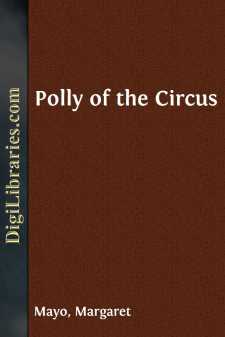Categories
- Antiques & Collectibles 13
- Architecture 36
- Art 48
- Bibles 22
- Biography & Autobiography 815
- Body, Mind & Spirit 144
- Business & Economics 28
- Children's Books 18
- Children's Fiction 14
- Computers 4
- Cooking 94
- Crafts & Hobbies 4
- Drama 346
- Education 58
- Family & Relationships 59
- Fiction 11833
- Games 19
- Gardening 17
- Health & Fitness 34
- History 1378
- House & Home 1
- Humor 147
- Juvenile Fiction 1873
- Juvenile Nonfiction 202
- Language Arts & Disciplines 89
- Law 16
- Literary Collections 686
- Literary Criticism 179
- Mathematics 13
- Medical 41
- Music 40
- Nature 179
- Non-Classifiable 1768
- Performing Arts 7
- Periodicals 1453
- Philosophy 65
- Photography 2
- Poetry 896
- Political Science 203
- Psychology 44
- Reference 154
- Religion 515
- Science 126
- Self-Help 85
- Social Science 82
- Sports & Recreation 34
- Study Aids 3
- Technology & Engineering 59
- Transportation 23
- Travel 463
- True Crime 29
Margaret Mayo
Margaret Mayo (1882–1951) was an American playwright, screenwriter, and actress. She is best known for her play "Polly of the Circus" (1907), which became one of the first works to be adapted into a silent film. Mayo wrote several successful plays, including "Baby Mine" (1910) and "The Fighting Hope" (1908), often focusing on romantic comedies or social dramas. Over her career, she made significant contributions to early American theater and cinema, both as a writer and as a creative force in adaptations for the screen.
Author's Books:
Sort by:
by:
Margaret Mayo
CHAPTER I Even in college Alfred Hardy was a young man of fixed ideas and high ideals and proud of it. His friend, Jimmy Jinks, had few ideas and no ideals, and was glad of it, and before half of their first college term had passed, Jimmy had ridded himself of all such worries as making up his own mind or directing his own morals. Alfred did all these things so much better, argued Jimmy, furthermore,...
more...
by:
Margaret Mayo
Chapter I The band of the "Great American Circus" was playing noisily. The performance was in full swing. Beside a shabby trunk in the women's dressing tent sat a young, wistful-faced girl, chin in hand, unheeding the chatter of the women about her or the picturesque disarray of the surrounding objects. Her eyes had been so long accustomed to the glitter and tinsel of circus fineries that...
more...



